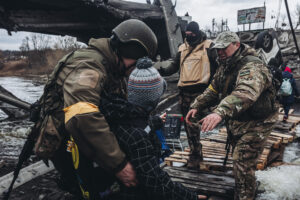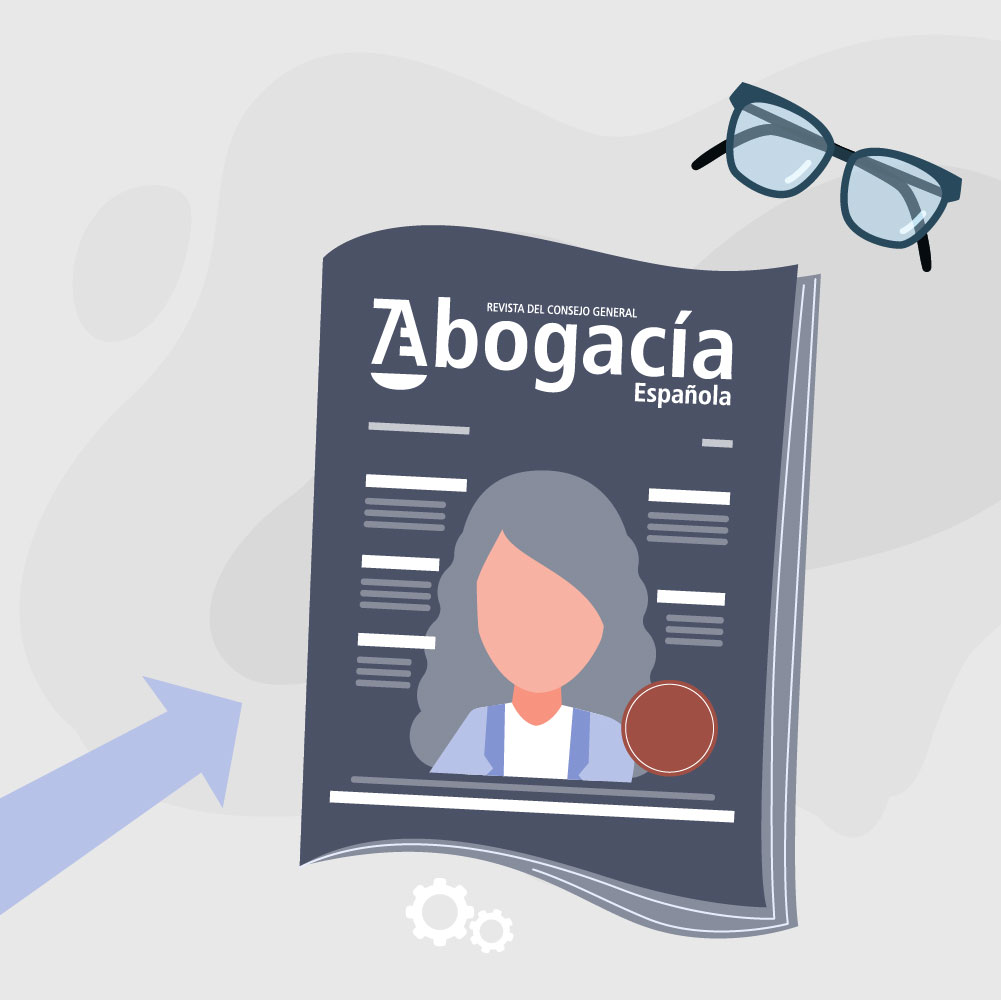04 abril 2022
La Abogacía crea un comité de expertos para analizar pruebas de crímenes de guerra en Ucrania
(English below)

La Abogacía Española ha creado un comité de expertos para analizar la información que reciba en el marco de su mecanismo de análisis y remisión a la Corte Penal Internacional (CPI) de pruebas de crímenes de guerra en Ucrania.
El 25 de marzo se dio a conocer este Mecanismo, creado para recoger, en las entrevistas mantenidas por abogados con refugiados ucranianos en España, testimonios de actuaciones armadas del ejercito ruso contra civiles ucranianos, que podrían ser constitutivas de crímenes de guerra.
El objetivo es facilitar la persecución penal de los crímenes cometidos por el ejército ruso en su ataque a Ucrania. El Fiscal de la Corte Penal Internacional (CPI), Karim Khan, ha abierto ya una investigación por crímenes de guerra y de lesa humanidad en Ucrania. Y dicha Corte ha desarrollado un portal para que los particulares puedan enviar sus denuncias.
“Todo los ataques a la población civil, a los pasillos humanitarios, a centros civiles donde está la población refugiada, a hospitales, a escuelas… son por supuesto crímenes de guerra. Es muy importante facilitar pruebas, evidencias, testimonios, pruebas gráfica sy testimonios de personas que han sufrido directamente crímenes de guerra o sus familias”, explica el impulsor de la iniciativa, Blas Jesús Imbroda, decano del Colegio de Meilla y presidente de la subcomisión de Extranjería del Consejo.
“La CPI tiene competencia y ya está en proceso de investigación. Es muy importante este procedimiento, que la CPI actue y también que dictara una orden de detención internacional contra Vladimir Putin que es un auténtico criminal de guerra”, añade Imbroda. “No tengo duda de que este señor acabará en un banquillo, de la CPI o de su propio país. Tarda, es difícil, pero hay que acabar con la impunidad de estos criminales de guerra. En la antigua Yugoslavia acabaron todos en el banquillo”.
A través del Comité que ha constituido la Abogacía Española se valorará la solidez y la pertinencia de los testimonios y pruebas que se reciban, recogidos en las entrevistas que mantienen los abogados con refugiados, para su remisión posterior a la Fiscalía de la CPI.
Este Comité estará dirigido por Imbroda, decano del Colegio de Melilla y contará con el catedrático Jaume Ferrer y el abogado David Querol, expertos en derecho internacional y justicia penal internacional, así como con el apoyo técnico de la Fundación Abogacía.
Created a Committee for the analysis of war crimes in Ukraine
The Spanish National Bar set up a Committee of experts that will evaluate information and documents within the framework of its “Mechanism of Analysis and referral to the International Criminal Court of evidence of war crimes in Ukraine”. This Mechanism’s aim is to obtain testimonies of allegedly illegal actions of the Russian Army against Ukrainian civilians.
Last March 25, the president of the Immigration and International Protection Subcommittee of the Spanish National Bar, Mr. Blas Imbroda, announced before the plenary body of this institution the constitution of the Mechanism. The methodology proposed is based on facilitating the prosecution of atrocious crimes. through testimonies collected in legal aid counselling services to Ukrainians fled from the war who currently find themselves in Spanish territory.
During Putin’s invasion of Ukraine and the siege of some cities, a variety of sources and media, denounced and broadcasted attacks by the Russian Army on the population and on civilian goods, events that could amount to war crimes.
Moreover, the Prosecutor of the International Criminal Court, Karim Khan, declared to be competent to investigate facts that may fall within the framework of war crimes, genocide and crimes against humanity. Hence, the Court developed a portal for individual complaints of facts that may constitute these range of crimes.
Through the Committee the Spanish Lawyers representative institution just now set up, the solidity and relevance of the testimonies and evidences received by the Mechanism will be assessed as complementary materials to those investigations that the International Criminal Court, through its Prosecutor’s Office, could undertake.
This Committee will be chaired by Mr. Blas Imbroda and will initially be made up of the judge José María Asencio, the professor Jaume Ferrer and the lawyer David Querol, experts in international law and international criminal justice, who will also count on the technical support of the Spanish National Bar Foundation for human rights.





